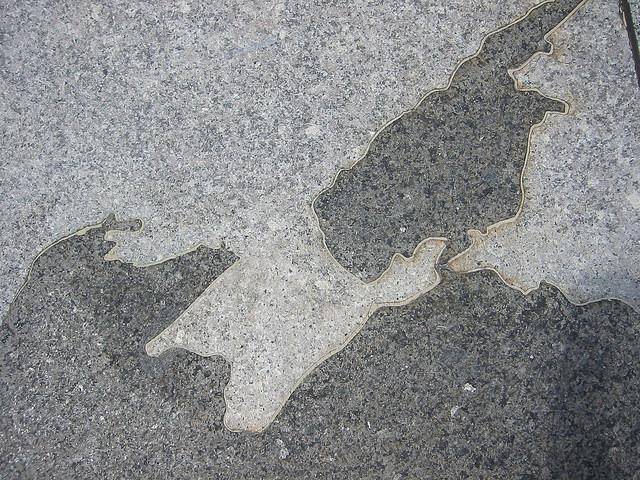To gauge the seriousness of the danger on the steppe, one has only to imagine German troops on Ukrainian territory, separated by a narrow front from Russian forces, quite possibly engaging them. If the US were to contemplate involvement, it would have logistical difficulties operating that far from home, not to mention face domestic political pressure to avoid another war (mitigated by a hawkish lobby, as always) and the ever-present nuclear Sword of Damocles. While the reach of American aircraft and drones means they can be used as a decisive force multiplier, any action on the ground to expel Russia from Crimea would have to be undertaken by NATO forces from other states. This would include post-war occupation. They would have to be serious forces. Who? Germany? France? Turkey? These considerations seriously undermine the threat of overt military intervention in Ukraine, especially in the East and Crimea.
This leaves economic sanctions and proxy war as the means of attempting to expel Russian influence from Crimea and, ultimately, take control of Sevastopol. Looking at economic sanctions, the Russian economy is already starting to suffer from the isolation being imposed upon it. Vladimir Putin may calculate that this will ease over time, especially since he can take retaliatory action of his own, including shutting off the gas to western Europe. Suffering of one kind or another will result, though, and Putin will come under domestic pressure. This may well be a calculation of western policy-makers, although the effectiveness of economic sanctions is disputed. There’s also a strain of thought in Russia that sees separation from the west as a good thing.
This leaves proxy war, which would involve funding resistance movements to conduct guerrilla operations against Russian occupation forces, while raising domestic ‘self-defence’ militias. These have a mixed record of success, and are often protracted and damaging. They may also require making allies of unsavoury elements from Tartar jihadis in Crimea to ultranationalists and Nazis in Kiev.
Even if the outcome of the referendum carries dubious legality and legitimacy, Kiev’s strenuous opposition and the boycotts of local groups, will make it hard for western leaders to dismiss what seems like a clear mandate from the people of Crimea. Targeted sanctions and economic isolation are about as much as they can reasonably do, and won’t be enough to force Putin to withdraw from a region in which he has general support among the populace.
Those hoping for the US to take a stronger position should be cautious. The worst case scenario would be that the US digs itself in so deep that it’s committed to fighting a major war. (Putin is already there, arguably.) War is a serious proposition at the best of times and by definition is characterised by uncertainty. If the US found itself committed to deploying major forces in the Black Sea, the uncertainty of the situation in the context of nuclear preparedness and Putin’s back-to-the-wall gambling would make this the most dangerous moment since the end of the Cold War, at least.
An alternative would be to get other NATO states to contribute the ground-force component and do most of the fighting. This quite possibly means German troops advancing into Ukraine, moving against Russian forces and occupying Russian-identifying areas. The most cursory knowledge of 20th-century history should make this prospect resonate with shivers of apprehension. Not too far further east is Volgograd, formerly known as Stalingrad.
All this seems to leave two less-than-worst options. Either NATO and Russia come to some agreement and force/encourage the locals to accept it. Or a prolonged, bloody and damaging civil war breaks out among the locals, because no-one wants to forcefully intervene. Really, such a war wouldn’t be civil in any sense, because it would be fought by clients, uncertainly unified, with extreme factions on both sides, drawing support from anywhere they can get it. In that scenario, Ukraine starts looking more like Syria.
Those who can really decide these matters may be putting on a good show to cover the fact that they’re going to agree to the obvious solution: partition and cession of Crimea to Russia. This might account for the strength of the rhetoric and chest-beating on both sides, playing to domestic hawks. The tricky part in this case is climbing down slowly. Alternatively, they may actually mean what they say. This will make de-escalation harder, and the danger will remain high, but as they think out the continuations, they should come to see the dangers grossly outweighing the benefits to be had from continued hostility.
A third possibility is that grander, more lunatic ambitions are at play. Putin may actually be aiming for Eastern Ukraine, Donetsk, and the humiliation of the Americans. Obama might be trying to get his name in the history books as the man who brought Putin down and stood up for those fine principles of legality, self-determination and non-intervention. Thus the dreams of the powerful may once again become the nightmares of the many. Let’s hope that the perfectly sensible solution that is there in front of all of them is visible to them, and they aren’t mesmerised by the whisperings of their advisors, and of history.
Ken Fraser is currently coordinating a course on International Relations Theory at the Australian National University. He is a lecturer, analyst and writer on international affairs, international relations theory, and world, economic and military history. Image courtesy of Flickr user futureatlas.com.
